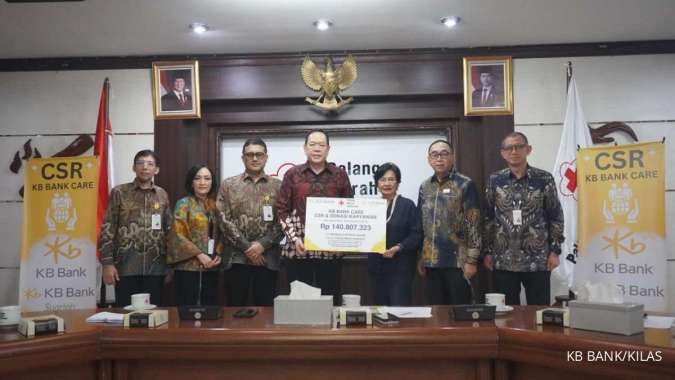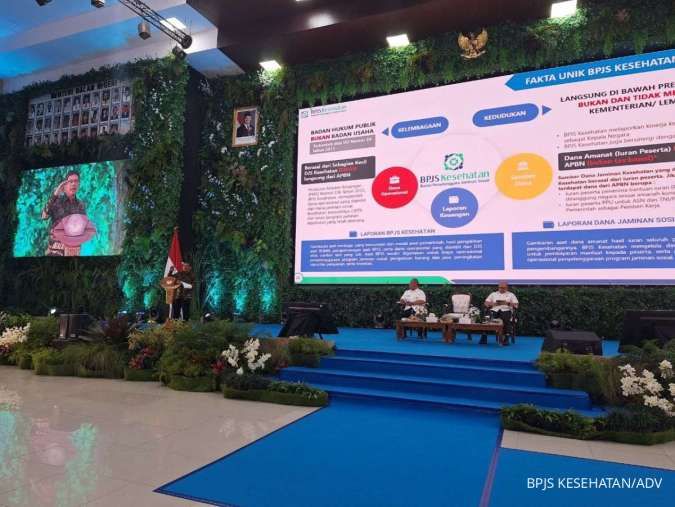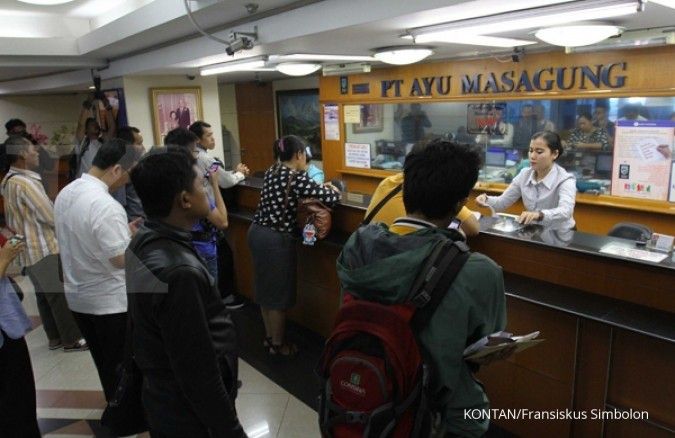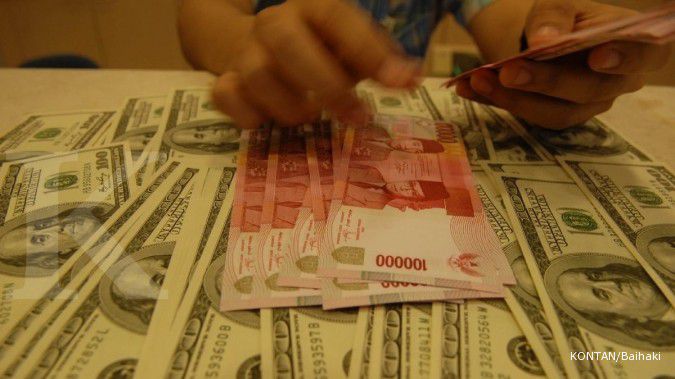JAKARTA. The government is seen as sending mixed signals with its policies to defend the rupiah, which has further plunged to be among the region’s worst performing currencies. As the rupiah continued to fall to around Rp 13,200 per US dollar, the government has pledged to speed up policies it deems will bolster rupiah transactions and keep foreign funds from fleeing the country. The policies include imposing anti-dumping duties on imported products suspected of being sold below fair value in the domestic market to protect local producers and increasing domestic use of biofuels to ease dependence on oil-based fuels — which could slow down imports.
“Communication and coordination among agencies don’t appear to run very smoothly. On one side, it seems that the government really wants to achieve its economic growth target, but on the other side, it wants to implement various austerity measures to narrow the CAD [current-account deficit],” Atmajaya University professor Agustinus Prasetyantoko told
The Jakarta Post on Wednesday. Indonesia’s current account, which is the broadest measure of international trade, has been suffering wide deficits in recent years as imports grow faster than exports, a major worry among investors that hold billions of dollars worth of rupiah assets. The central bank has targeted that the CAD could be maintained at around 3 percent of the gross domestic product (GDP). On the other hand, import growth is seen as unavoidable, especially with the government eyeing 5.7 percent economic growth this year and 7 percent within President Joko “Jokowi” Widodo’s presidency, as economic activities in Southeast Asia’s largest economy are still dependent on imported products, economists have said. Bank Central Asia (BCA) economist David Sumual said that the ambition to reach the 5.7 percent growth rate reflected the regime’s efforts to fulfill its campaign promises. However, he insisted that maintaining prudence and stability was more important than achieving the target. Indonesian Institute of Sciences (LIPI) economist Latif Adam also said that many of the recent policies were not in sync with the reality in the field and that had generated confusion and skepticism among investors and the private sector. Bank Indonesia (BI), for instance, has continued to claim that it is holding on to its tight bias policy to maintain prudence on economic growth. However, it slashed its benchmark interest rate by 25 basis points to 7.5 percent in February, which banks said would be followed by lending rate cuts, encouraging people and businesses to borrow and heat up the economy. BI Governor Agus Martowardojo — speaking after a meeting with President Jokowi, Vice President Jusuf Kalla and relevant ministers — said that the central bank would not loosen its tight policy until the country’s inflation and current account headed toward a more positive direction. Atmajaya’s Prasetyantoko and Lana Soelistianingsih, a Samuel Sekuritas economist, said that the policies might not effectively achieve their supposed targets. Prasetyantoko argued that companies would be more inclined to retain their dividends onshore if the government provided a clearer economic path and stance, rather than by being offered an incentive. Lana, on the other hand, said that the anti-dumping duty must be thoroughly prepared to avoid legal disputes at the World Trade Organization (WTO). Vice President Jusuf Kalla defended the government’s current stance, saying that it would be “cautiously aggressive” in pursuing the economic growth target. “We are being aggressive, but are also treading cautiously. We will make sure that investments continue to come and infrastructure is developed,” he said.
The rupiah fell 0.8 percent in the biggest drop since Jan. 30 to close at Rp 13,192 a dollar on Wednesday, prices from local banks compiled by Bloomberg show. It reached 13,246 earlier, the weakest since August 1998. The currency has plunged 6.8 percent so far this year, the worst performing currency in Asia monitored by Bahana Securities. Eight policies to be implemented soon to stabilize the rupiah: 1. Imposing a temporary anti-dumping duty on imported goods suspected of being sold on the domestic market below fair market value 2. Tax incentives for Indonesian companies that sell 30 percent of their products overseas 3. Freeing shipbuilders from value-added taxes in a Government Regulation (PP) on domestic shipyard industry 4. Increasing domestic use of biofuels to reduce imports of oil and fuel 5. Tax incentives for foreign companies investing in Indonesia that do not repatriate 100 percent of their dividends to home countries 6. Finance Minister, Transportation Minister, Indonesian National Shipowners Association (INSA) will formulate tax payments of foreign shipping companies 7. Encouraging merger of reinsurance operations of state-owned enterprises to boost capacity so companies can use domestic reinsurance instead of paying for the coverage overseas 8. Enforcing the use of the rupiah for any transaction in Indonesia, as stipulated in the Currency Law
Source: Finance Ministry 



